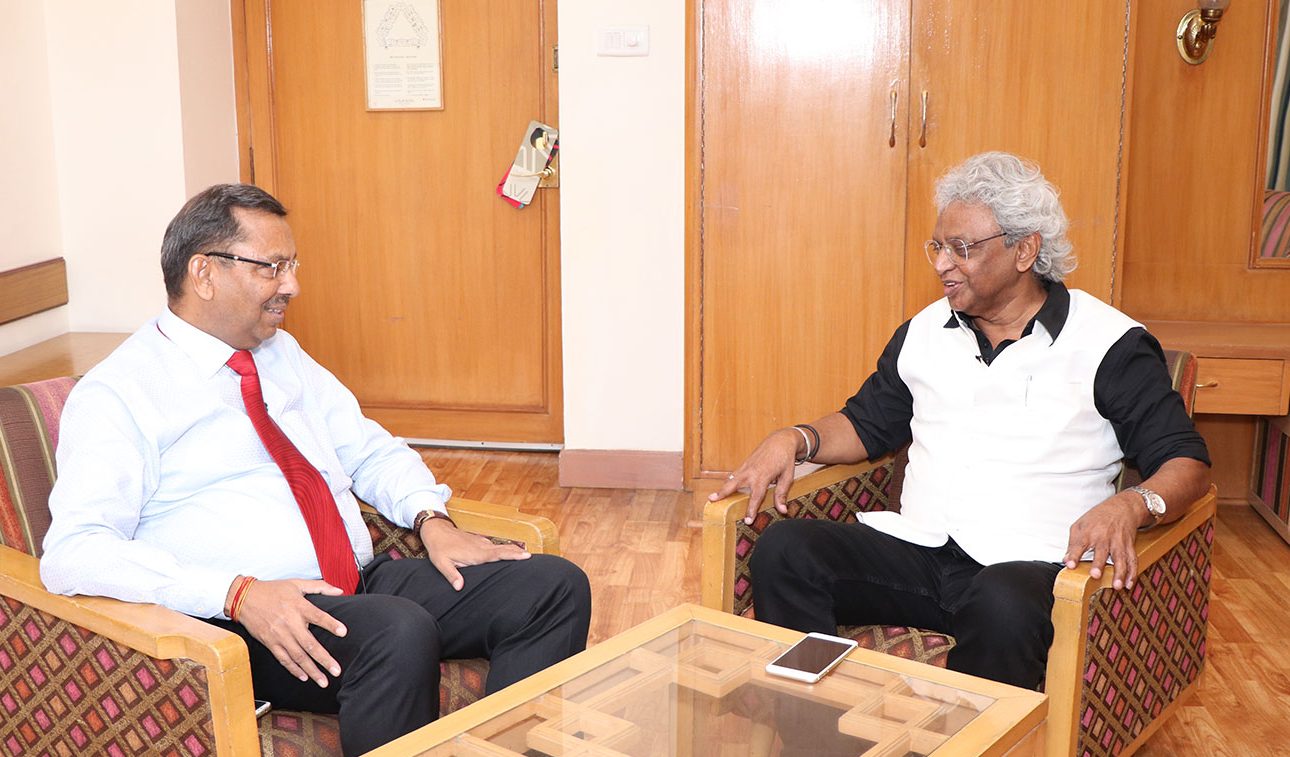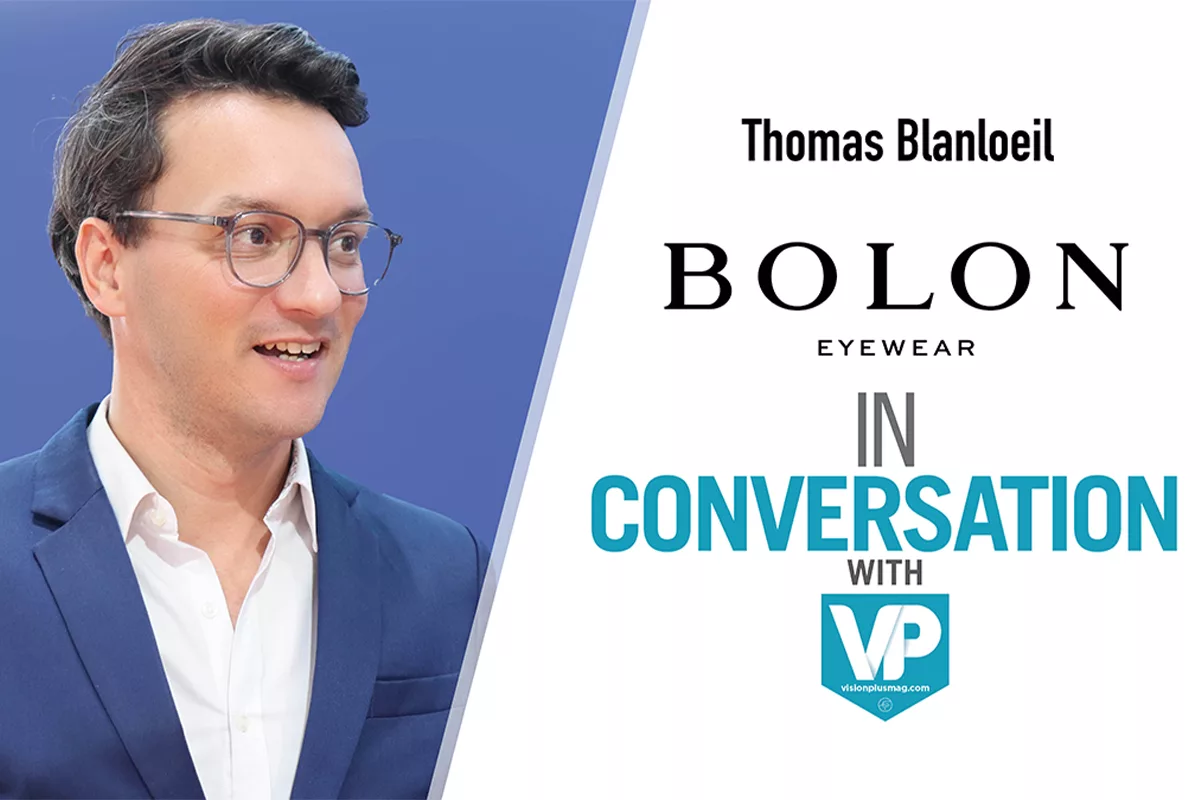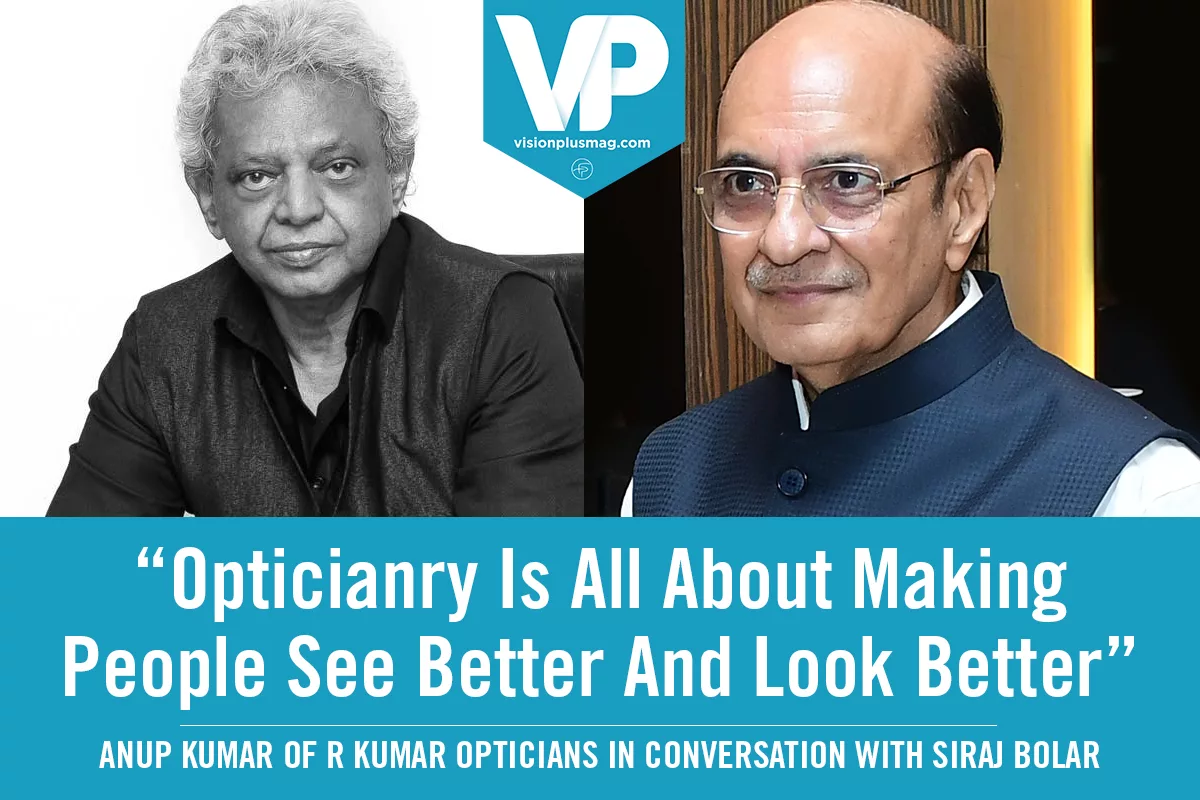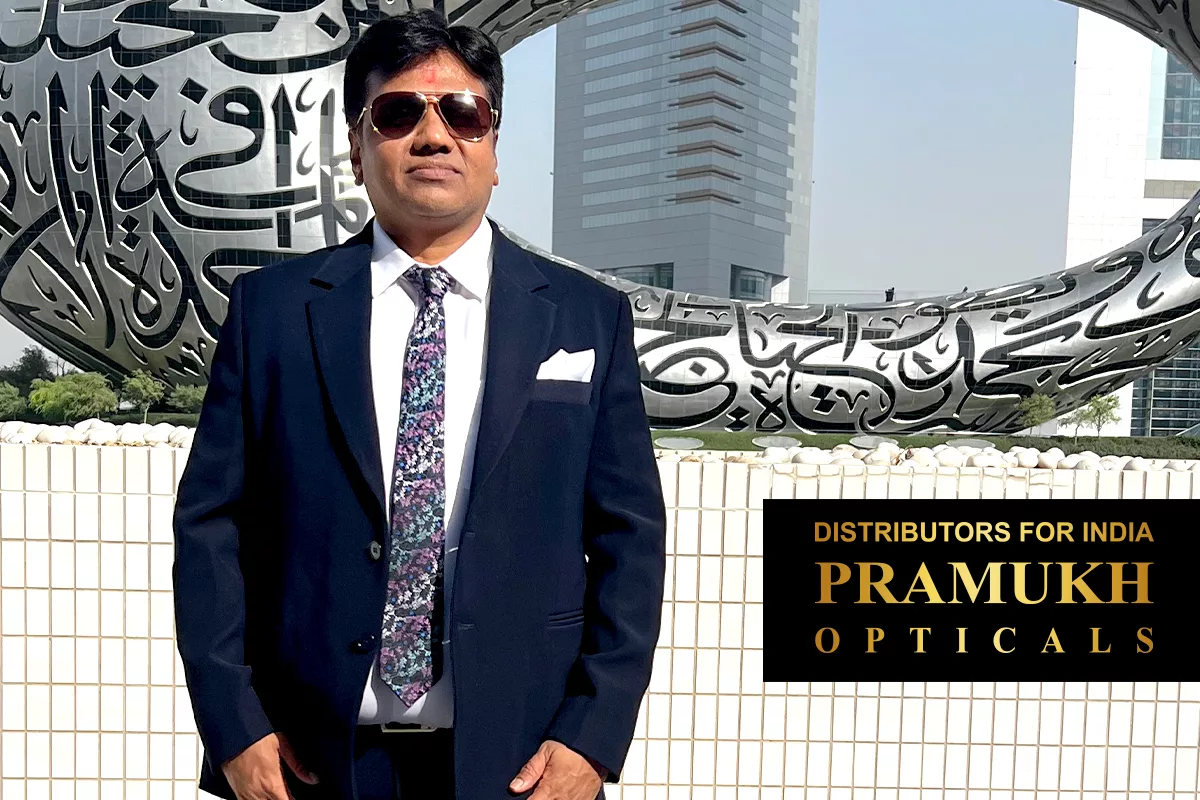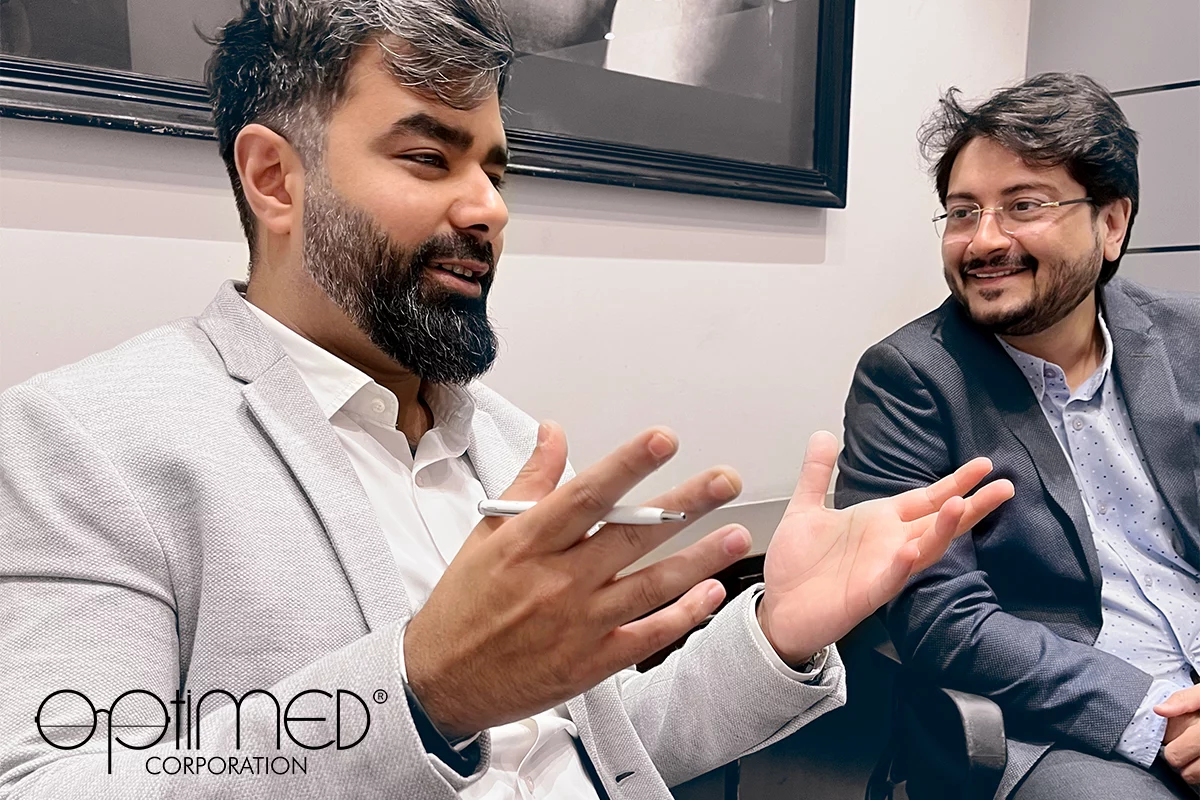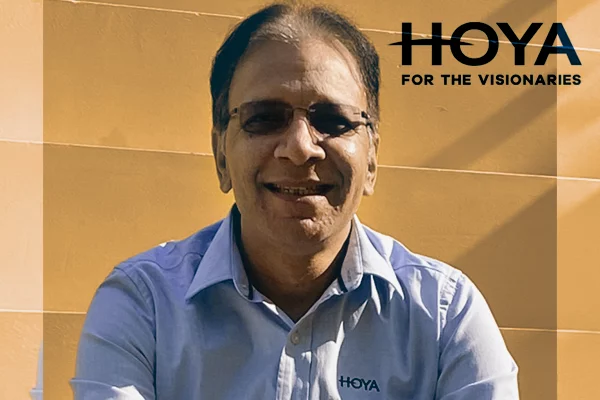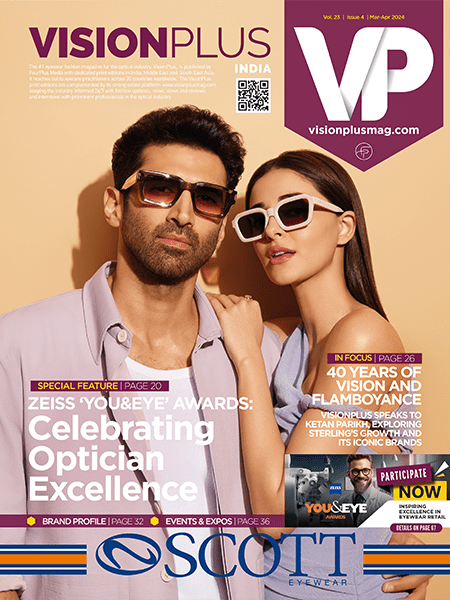Mr Anand Maharwal, General Secretary of Optical Association of India, in conversation with Mr Siraj Bolar, Editor-in-Chief, VisionPlus magazine, on the various issues concerning optical trade in India and how OAI is playing a crucial role to resolve them…
With an ambition to bring a change in the Indian optical industry and to bring justice to all the opticians present, the Optical Association Of India plays its part to take the industry to the next level.
How and why was the Optical Association of India formed?
I am a life member of AIOF (All India Optical Federation) which was formed in 2016. Till 2017, there was very little or no communication between the members of AIOF which was very disappointing. I believe that a federation, an association is always for the larger interest of the trade. There were a lot of issues that the optical industry is facing but the authorities were not doing much. Later that year many members from the optical trade community met in Ahmedabad in the month of June. At this gathering, the unanimous decision was to form an organisation that has pan-India representation and helps in improving the optical trade. During the visit to Punjab Optical Association, 280 people came together to form the Optical Association Of India (OAI).
In your opinion, what were the issues faced by the optical industry and what has OAI done to resolve them?
It is an obvious problem if a business grows, challenges are bound to arise. One such issue that comes to my mind is that of the taxes imposed on optical items. To be precise, it was 18% on sunglasses, contact lenses and contact lens solutions. As a representative of the optical trade community, we met honourable members of the government and were able to successfully bring down the taxes to 12%.
Another major issue that we were facing was, an RTI filed to the Government of India, demanding that only qualified personnel be a part of the optical business. However, in our opinion, since the optical business has been running for more than a century purely on the basis of experience, it would be unfair to impose such a rule. Our request to the government was the current opticians should be recognised on the basis of their experience and not just qualification. We agree that this recognition should be done on the basis of conducting tests to understand their expertise. At the same time, we welcome the initiative for upcoming opticians.
Since the eyewear industry is considered a part of the fashion industry, does its comparison with medical industries sound fair?
To be fair, eyewear has evolved to receive the status of a fashion accessory only recently. However, its primary motive of protecting the eyes to improve vision health must not be ignored. With this background, I believe the comparison is indeed fair.
What do you have on your table right now?
The most important issue that we have right now is to save the legacy of the opticians, to ensure that they get their rights and get the opportunity to work on the basis of experience. Additionally, our efforts will be directed to minimise government interference and facilitate the growth of the industry. Even the Make in India mission endorsed by the Government of India is on our agenda. But growth in the manufacturing sector is going to be challenging given the existing government policies.
I disagree with you to an extent, government policies are not the only issue bothering the manufacturing sector. We also lack skilled labour to match the competencies of the optical trade in countries like China, Italy and France.
Yes, you are right. But the problem due to government policies is far bigger. Of late, there have been various strikes, conflicts, etc. impacting the production in the eyewear manufacturing segment. I have been to China, visited the factories there and the level of professionalism that I witnessed was truly impressive. Our long-term aim is to uplift the work culture here in India which in turn will also improve the condition of the manufacturing sector.
That’s really great! Would you tell me what are the steps you are taking for it?
We have formed a Manufacturer Cell, which consists of frames makers, lens makers and other members from the manufacturing community. OAI aims to act as a bridge that will help the manufacturing community to progress. Be it machinery, equipment or skill development programmes, OAI will facilitate the same.
This is very interesting for me because our VP Academy is not only for opticians but also for manufacturers. I have big plans for it. I want to make an academy where I can train the those who aspire to work for the optical trade. Make In India is a very interesting subject for me and I have a lot in my mind for which I’d need your help!
Of course Sir! We want to do something for this industry and for that all one needs is willpower. I remember when VisionPlus was born the entire optical industry saw a new era. VisionPlus clearly stands above the crowd in the industry because it has worked dedicatedly to promote its welfare. I congratulate you on behalf of OAI, and I ensure you that OAI will be with you in all such initiatives to promote the welfare of the industry.
Thank you It feels good!
Moving on, please tell us what makes OAI different from the other associations?
All the associations formed are registered under societies act which makes the association as good as a supreme power. On the other hand, we’ve registered OAI under Indian companies act section 8 as an NGO. It is the only association to be registered as an NGO. Those registered under the section 8 companies’ act are monitored by the government making us answerable for our accounts and actions. Each of our members is officially registered, you can even check the names on our website.
As you said, you’ve reduced the tax from 18% to 12% – this is an achievement! Any more of such achievements that you look forward to?
The OAI has achieved a lot. When contact lenses were classified as medical devices and was being excluded from optical trade on January 1, 2018, we took a stand and spoke to the government officials. Our request to let it be a part of the optical trade was agreed upon. OAI spearheaded this movement when the other industry bodies were mute spectators.
What is your say in the online business that is taking a large chunk of the business today?
In my opinion, online business does not suit the optical trade. This is in the interest of the industry as well as the consumers. When it comes to choosing a frame, there are many aspects that need to be considered. Such precision and accuracy cannot be achieved while shopping online. Even the smallest mistake can lead to a major discomfort for the wearer.
Are you planning to control this, if yes, how?
Well, we are planning to take up the issue with the Government of India. The online business is not what it seems for the optical trade. Our focus will be on conveying the disadvantages of relying on online portals to purchase eyewear. As an initial step, we have already presented the matter to Dr. Vikas Mahatme, renowned ophthalmologist – who is a Padmashree and member of the parliament. I am happy to share that he was pretty impressed with our efforts and has assured us his full support.
What about the illegal business and corruption that seeps into such organisations? What would be your say in that?
Illegal business is a cancer for any industry and removing it has been our focus from the very beginning. We crave for fewer taxes because we know the value of money and hard work. At the OAI, we believe that any illegal business is not healthy for the industry. All our data is clean and well maintained – be it the information of the members or their work, everything is on track and is open for audit by any authority. Given this structure, I am confident that we are well-equipped to avoid any unlawful practice to take place in the OAI.

